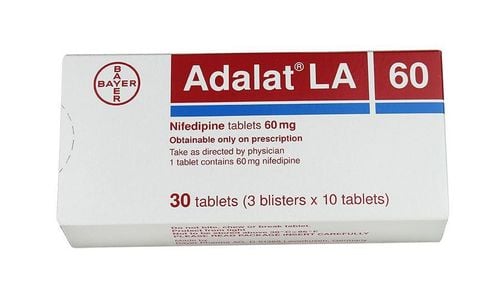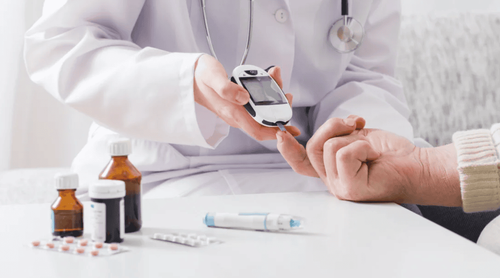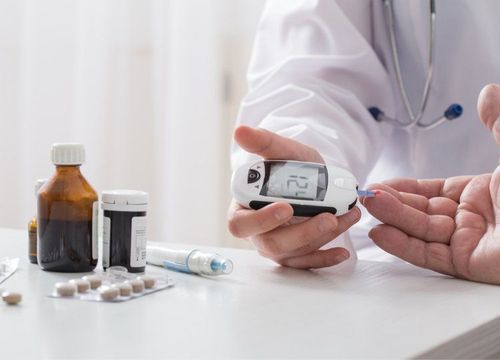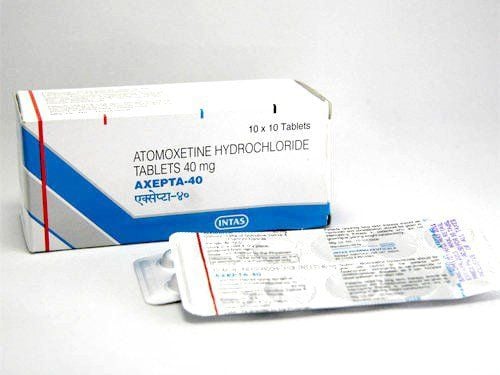This is an automatically translated article.
Prediabetes is when blood sugar levels are higher than normal, this is also known as dysglycemia or impaired glucose tolerance.
1. What is prediabetes?
If you are diagnosed with prediabetes, it means you have blood sugar levels higher than normal but not to the point of diabetes. If you don't get it treated, prediabetes can lead to type 2 diabetes. Prediabetes is a reversible condition. Treatment options may include lifestyle changes, such as diet and exercise, and medication. Once prediabetes is present and no lifestyle changes are made, the disease can progress within 10 years.
People with type 2 diabetes almost always have prediabetes first. Treating prediabetes can prevent more serious health problems.
2. What is the cause of prediabetes?
The pancreas is the place where a hormone called insulin is secreted, when we eat, the body's cells can take sugar from the blood into the cells for energy. In the case of prediabetes, the cells do not respond properly to insulin, also known as insulin resistance.
There is no obvious cause of insulin resistance. Prediabetes is closely related to lifestyle and genetic factors, and people who are overweight and have limited physical activity are also at increased risk for prediabetes.
3. Who is prone to prediabetes?

Những người thừa cân cũng có nguy cơ mắc tiền tiểu đường cao
Prediabetes can happen to anyone, but certain factors increase your chances.
If you are over 45 or you have a body mass index (BMI) higher than 25, your doctor may want to screen you for prediabetes. Have a waist circumference larger than 40-inches if you're male and around 35-inches if you're female. Storing more fat around the waist than hips is also a risk factor for prediabetes. Eating a lot of red and processed meat, drinking sugar-sweetened beverages, and not eating a lot of fruits, vegetables, nuts, and whole grains nuts or olive oil Being overweight or obese, especially with a lot of belly fat Not exercising Have gestational diabetes or giving birth to a baby weighing more than 9 pounds Have polycystic ovary syndrome Have problems sleeping, such as such as sleep apnea or changing shifts or night shifts Get checked for prediabetes if you have any of the above and if you: Have had abnormal blood sugar readings Have a heart condition Have signs of insulin resistance, That is, the body makes insulin but does not respond to it as it should. They are the cause of dark patches of skin, difficulty concentrating, and being more tired or hungry than usual.
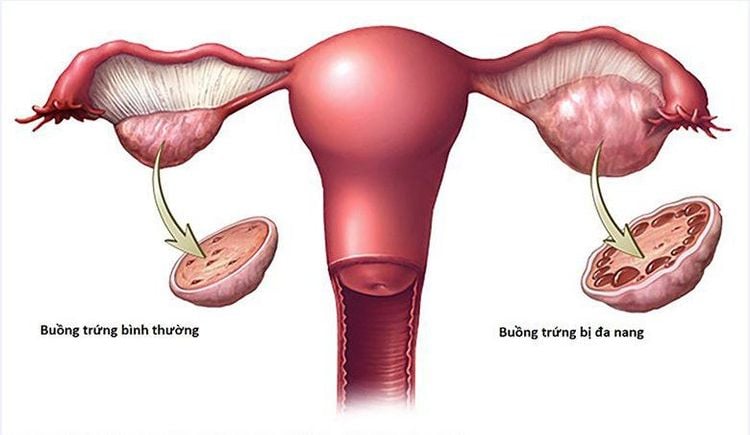
Nếu bạn mắc hội chứng buồng trứng đa nang có thể là một yếu tố làm tăng khả năng bị bệnh tiền tiểu đường
To protect the health of everyone, every home, Vinmec International General Hospital always deploys a screening package for diabetes and dyslipidemia to help detect pre-diabetes early and classify it accurately. type of diabetes, develop a nutritional regimen, monitor to minimize the risks and complications caused by diabetes.
Using the screening package for diabetes and dyslipidemia at Vinmec, patients will receive:
Endocrine CK examination (with appointment) Total urinalysis (by automatic machine) Quantitative Glucose Quantitative HbA1c Quantitative Uric Acid Quantification of Cholesterol Determination of HDL-C (High density lipoprotein Cholesterol) Determination of LDL-C (Low density lipoprotein Cholesterol) Determination of Triglycerides Determination of Urea Determination of Creatinine Measurement of AST Activity (GOT) Measurement of ALT Activity (GPT) Measurement of GGT activity (Gama glutamyl Transferase) Quantification of MAU (Micro Albumin Arine) Echocardiography, transthoracic pericardium, Normal ECG, Carotid Doppler ultrasound, Transcranial Doppler (carotid) Arterial Doppler ultrasound, lower extremity veins (bilateral lower extremity arteries)
Please dial HOTLINE for more information or register for an appointment HERE. Download MyVinmec app to make appointments faster and to manage your bookings easily.
Reference sources: healthline.com, webmd.com



